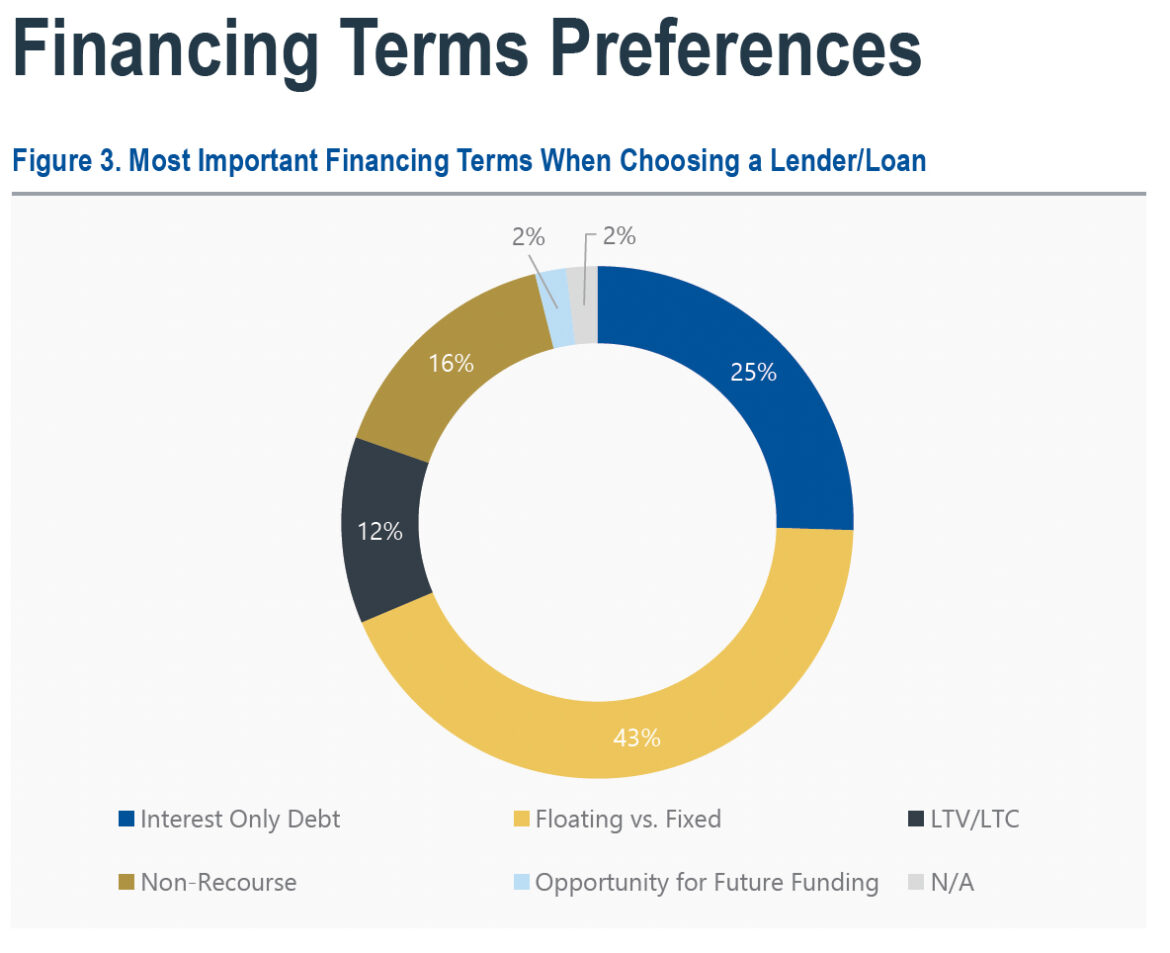CHICAGO — Seniors housing investors expect that capitalization rates will increase over the next 12 months, according to the inaugural edition of the Seniors Housing Investor Survey.
Partner Valuation Advisors, a Chicago-based valuation firm, completed the survey in September with over 100 respondents.
The purpose of the survey is to identify current trends in the seniors housing sector, which has seen numerous changes due to the impacts of increased interest rates/cost of debt and inflation, according to Partner Valuation Advisors. These factors led to declining transactional and lending volume in the first half of 2023.
Highlights of the survey include:
- The most preferred investor return for seniors housing was leveraged internal rate of return (IRR) followed by cash-on-cash returns.
- In terms of levels of financing, over 50 percent of respondents prefer 65 to 70 percent loan-to-value ratio, but over 40 percent of respondents are now seeing loan limits of due to more conservative lending requirements.
- Capitalization rates are expected to continue to increase over the next 12 months. Thirty-five percent of the respondents expect the rates to increase in excess of 25 basis points.
- Seniors housing assets were typically on the market for nine to 12 months from the day of listing to the day of closing, according to the majority of respondents.
- The top concerns of survey respondents were related to the availability of financing and increased interest rates.
- The consensus of respondents indicated that property values have declined due to the increased cost of capital and increased cap rates.
- Respondents indicated that the biggest investment opportunities in the seniors housing sector were related to active adult and assisted living communities.
“The seniors housing industry is well positioned for growth due to the foundational factors of limited new supply and ongoing strong demand,” says Brian Chandler, national practice leader for seniors housing with Partner Valuation Advisors. “However, the broader capital markets have become less appealing with the increasing cost of capital.
“The Federal Reserve seems inclined to maintain a vigilant stance on inflation, which means that interest rates are likely to remain high going into 2024. This sets the stage for what we expect will be increased headwinds in the investment real estate sector compared to the previous cycle.”To view the full survey results, click here.

